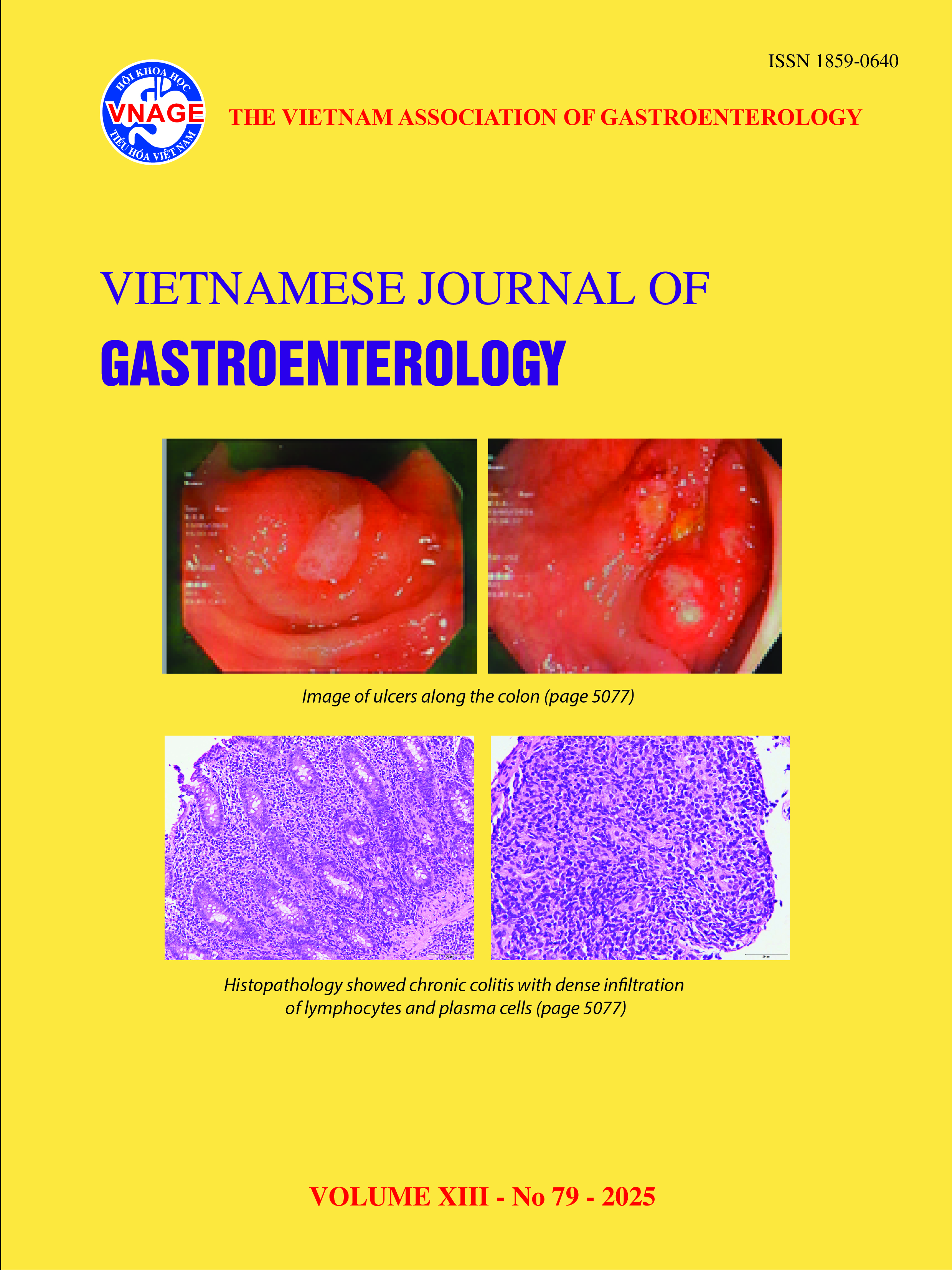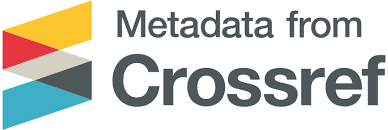Evaluation of long-term outcomes after gastric cancer surgery combined with adjuvant chemotherapy
DOI:
https://doi.org/10.63583/2qt2vm64Từ khóa:
Gastric cancer, long-term outcomes, adjuvant chemotherapyTóm tắt
Objective: To investigate selected clinical and paraclinical characteristics of patients with gastric cancer and to evaluate long-term outcomes following gastric cancer surgery combined with adjuvant chemotherapy. Subjects and method: A cross-sectional descriptive study with prospective interventional and longitudinal follow-up was conducted on 63 patients diagnosed with distal one-third gastric cancer who underwent subtotal gastrectomy combined with chemotherapy between January 2018 and December 2024. Result: The mean age of patients was 58.2 ± 10.8 years, with a predominance of males (73.0%). Most patients underwent open surgery (79.4%), primarily involving 3/4 and 4/5 gastric resections. TNM stage III accounted for the highest proportion (36.5%), with adenocarcinoma being the most common histological type (87.3%). Non-hematologic adverse effects related to the ECX regimen were mostly mild to moderate, with grade 2 nausea/vomiting (77.8%) and grade 3 alopecia (74.6%) being the most frequent. Metastases occurred mainly between 12 and 18 months post-treatment, commonly involving the liver (42.9%) and peritoneum (35.7%). The 1-year and 5-year overall survival rates were 95.8% and 64.5%, respectively; disease-free survival rates were 93.2% and 61.3%, respectively. Quality of life declined over time, with the proportion of patients achieving high scores (9–10) decreasing, while those with poor scores (5–6) increased to 20.9% at 24 months. Conclusion: Surgery combined with adjuvant chemotherapy using the ECX regimen provides relatively favorable survival outcomes in patients with gastric cancer. However, the risk of early metastasis and the trend of declining quality of life underscore the need for long-term monitoring and supportive interventions.
Tài liệu tham khảo
1. Sung H., Ferlay J., Siegel R.L. et al. (2021). Global Cancer Statistics 2020: GLOBOCAN Estimates of Incidence and Mortality Worldwide for 36 Cancers in 185 Countries. CA Cancer J Clin, 71(3), 209-249.
2. The GASTRIC (Global Advanced/Adjuvant Stomach Tumor Research International Collaboration) Group* (2010). Benefit of Adjuvant Chemotherapy for Resectable Gastric Cancer: A Meta-analysis. JAMA, 303(17), 1729-1737.
3. Ashraf N., Hoffe S., Kim R. (2013). Adjuvant Treatment for Gastric Cancer: Chemotherapy Versus Radiation. The Oncologist, 18(9), 1013-1021.
4. Zeng H., Wang C., Song L.-Y. et al (2022). Economic evaluation of FLOT and ECF/ECX perioperative chemotherapy in patients with resectable gastric or gastro-oesophageal junction adenocarcinoma. BMJ Open. 12(11). e060983. doi: 10.1136/bmjopen-2022-060983.
5. Park J.-H., Kong S.-H., Choi J.-H. et al (2020). Proximal Anterior-Antrum Posterior (PAAP) Overlapping Anastomosis in Minimally Invasive Pylorus-Preserving Gastrectomy for Early Gastric Cancer Located in the High Body and Posterior Wall of the Stomach. Journal of Gastric Cancer, 20(3), 277-289.
6. Lee J.H., Hong Y., Choi Y.J. et al (2019). Prognosis of proximal upper-third gastric cancer excluding tumors originating in the esophagogastric junction. Korean J Clin Oncol, 15(2), 93–99.
7. Hsu F.-K., Chang W.-K., Lin K.-J.et al. (2021). The Associations between Perioperative Blood Transfusion and Long-Term Outcomes after Stomach Cancer Surgery. Cancers, 13(21), 5438.
8. Riihimäki M., Hemminki A., Sundquist K. et al (2016). Metastatic spread in patients with gastric cancer. Oncotarget, 7(32), 52307-52316.
9. Mokadem I., Dijksterhuis W.P.M., van Putten M. et al (2019). Recurrence after preoperative chemotherapy and surgery for gastric adenocarcinoma: a multicenter study. Gastric Cancer, 22(6), 1263-1273.
10. Mondaca S., Pinto M.P., Briones J. et al (2023). Impact of Adjuvant FOLFOX on Quality of Life and Peripheral Neuropathy Incidence in Patients With Gastric Cancer: A Prospective Cohort Study. Value Health Reg Issues, 35, 13-18.









